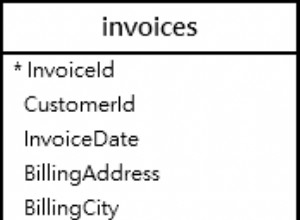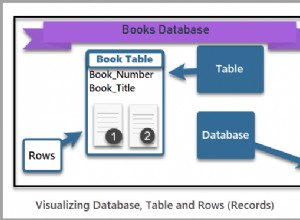Użyj Promise.all aby wykonać wszystkie twoje zapytania, a następnie wywołaj następną funkcję.
models.Attendance.findAll({
where: {
UserId: req.user.id
}
}).then(function (data) {
// get an array of the data keys, (not sure if you need to do this)
// it is unclear whether data is an object of users or an array. I assume
// it's an object as you used a `for in` loop
const keys = Object.keys(data)
// map the data keys to [Promise(query), Promise(query), {...}]
const hacks = keys.map((d) => {
return models.Hackathon.findOne({
where: {
id: data[d].id
}
})
})
// user Promise.all to resolve all of the promises asynchronously
Promise.all(hacks)
// this will be called once all promises have resolved so
// you can modify your data. it will be an array of the returned values
.then((users) => {
const [user1, user2, {...}] = users
res.render('dashboard/index.ejs', {
title: 'My Hackathons',
user: req.user,
hacks: users
});
})
});



